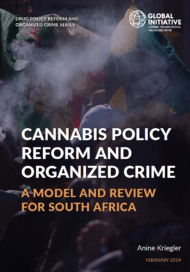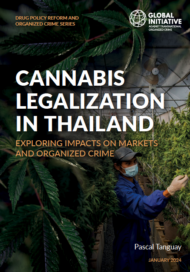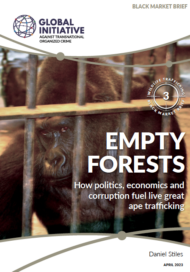Posted on 06 Feb 2024
Cannabis legalization has the potential to weaken organized crime, but it can just as easily strengthen it unless a balance is found between restriction and liberalization, coordinated across both the supply and demand sides of the market. South Africa’s current cannabis policy lacks coherence, with reforms driven more by legal challenges than by strategic policymaking, posing challenges in effectively countering organized crime.
This paper summarizes the history and status of cannabis decriminalization in South Africa and draws on a review of literature to identify a key set of variables that determine the impact of legalization on organized crime: the type and degree of restrictiveness of the new regulations; various cultural, socio-economic, and political factors; features of the criminal justice system; and the structure and nature of criminal organization in the illegal cannabis market.
Reflections are provided on what these suggest about the likely impact of South African cannabis legalization on organized crime, and potential lessons and recommendations are proposed for effective policy reform in South Africa, as well as guidance for similar decision-making in other contexts.
Effective reform requires integrating marginalized communities and black-market participants into the legal market, along with considerations for managing legal supply, strategic enforcement against criminal gangs, and public health education to ensure a comprehensive approach to reducing organized crime. A phased implementation of regulatory frameworks, ongoing monitoring, and investment in data collection are essential to assess and optimize the impact of legalization on organized crime.




